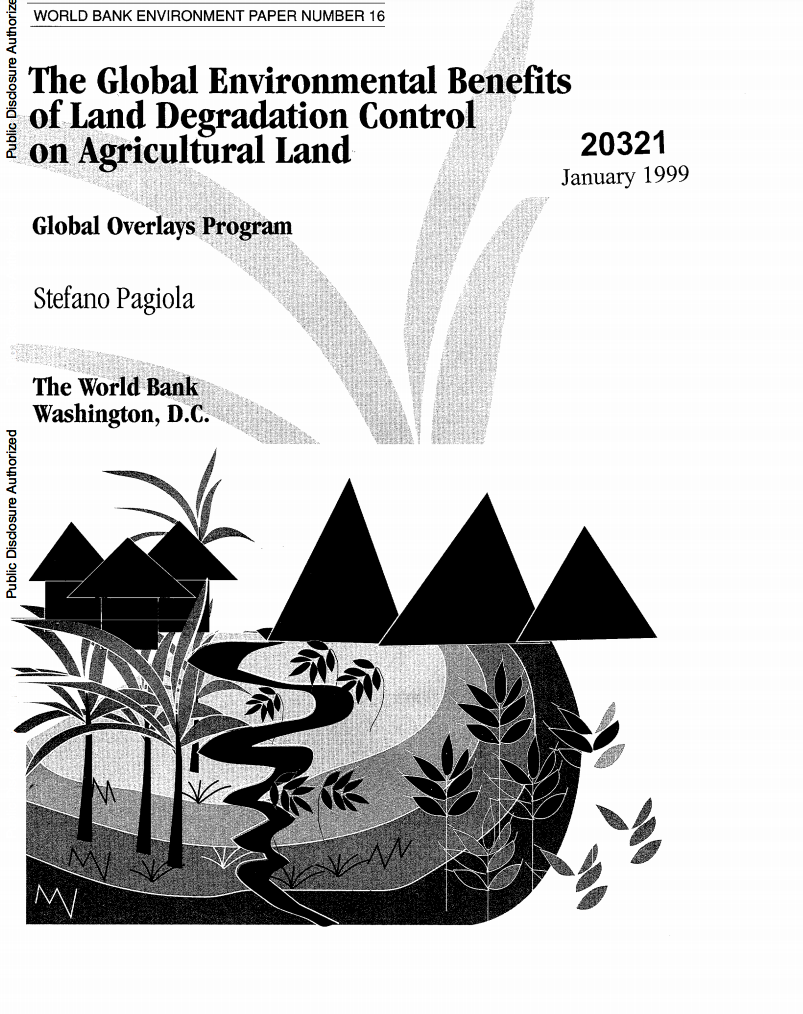The global environmental benefits of land degradation control on agricultural land - global overlays program
The note focuses on the global effects of land degradation, but emphasizes other important levels of land degradation: at the field level, it may result in reduced productivity; at the national level, it may cause flooding, and sedimentation; and, at the global level, it can contribute to climate changes, damaging bio-diversity, and international waters. The effects on climate changes are explored, and the report questions the extent to which land degradation on agricultural land, affects climate change. Does it increase emissions of greenhouse gases?


